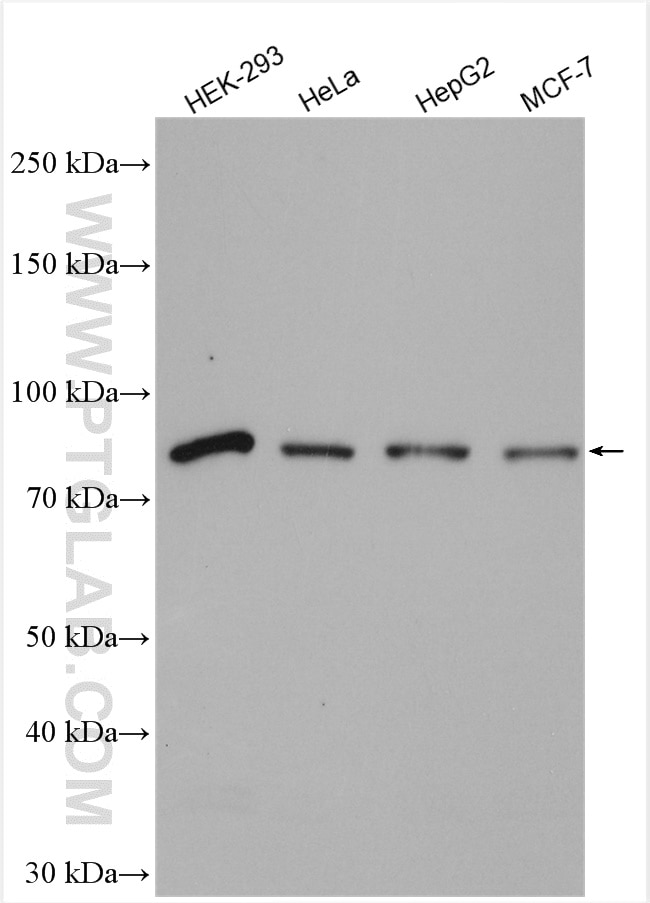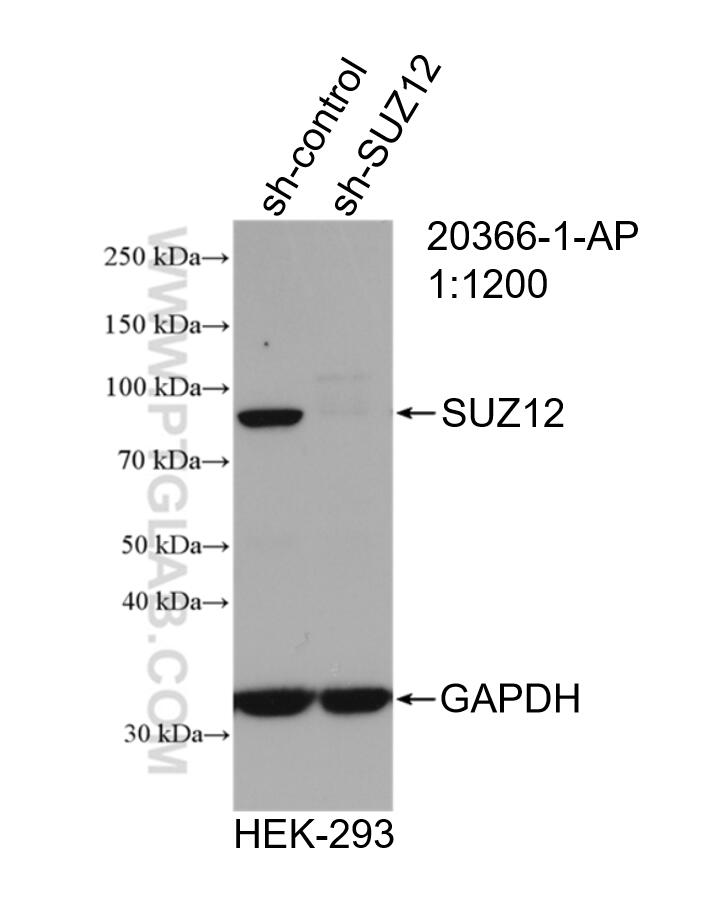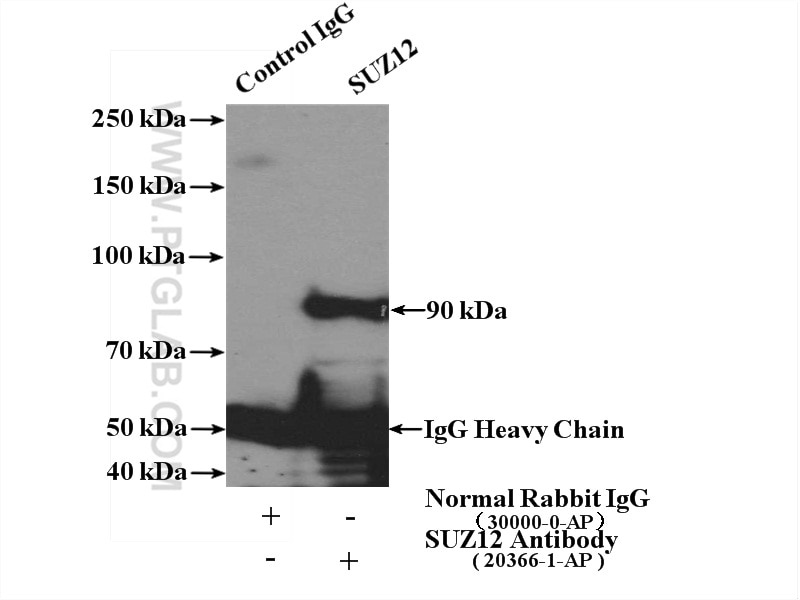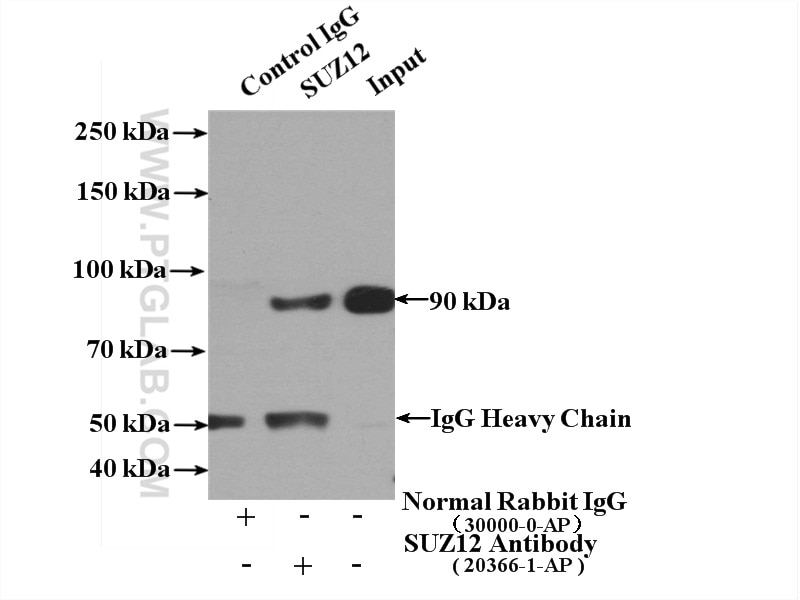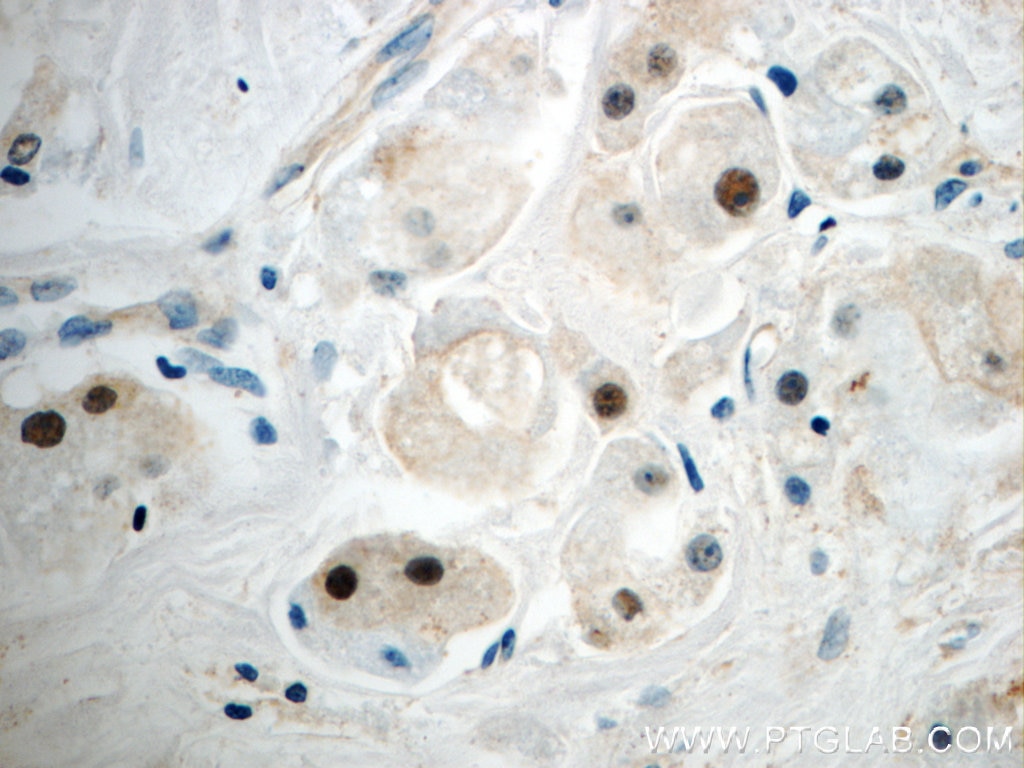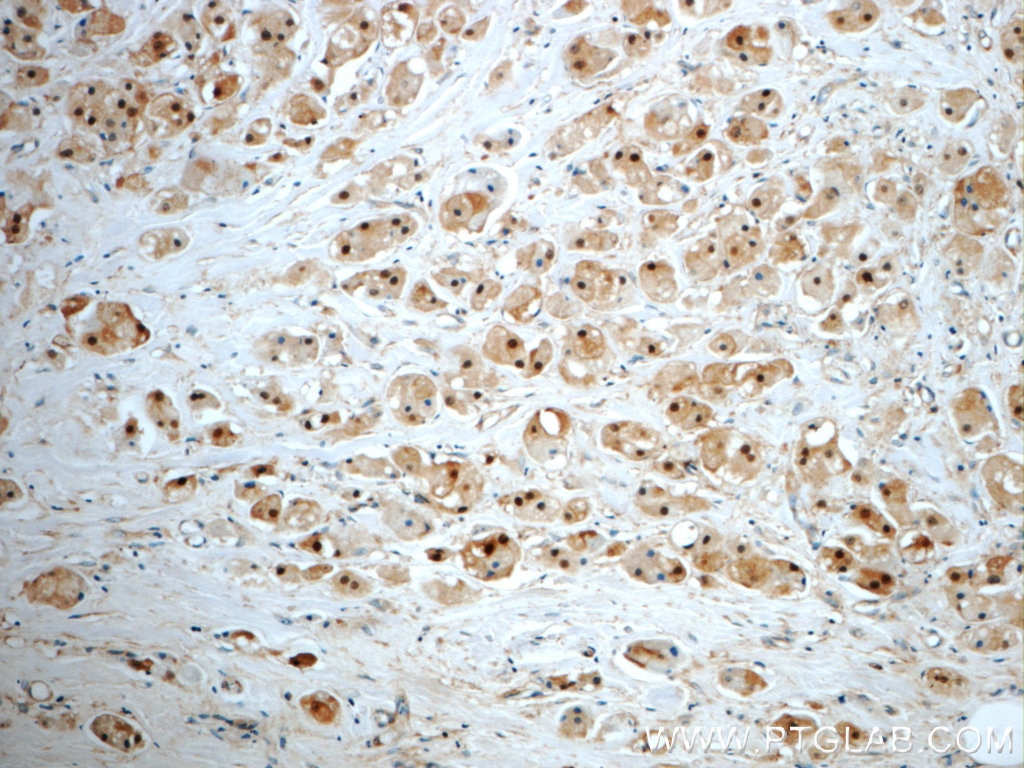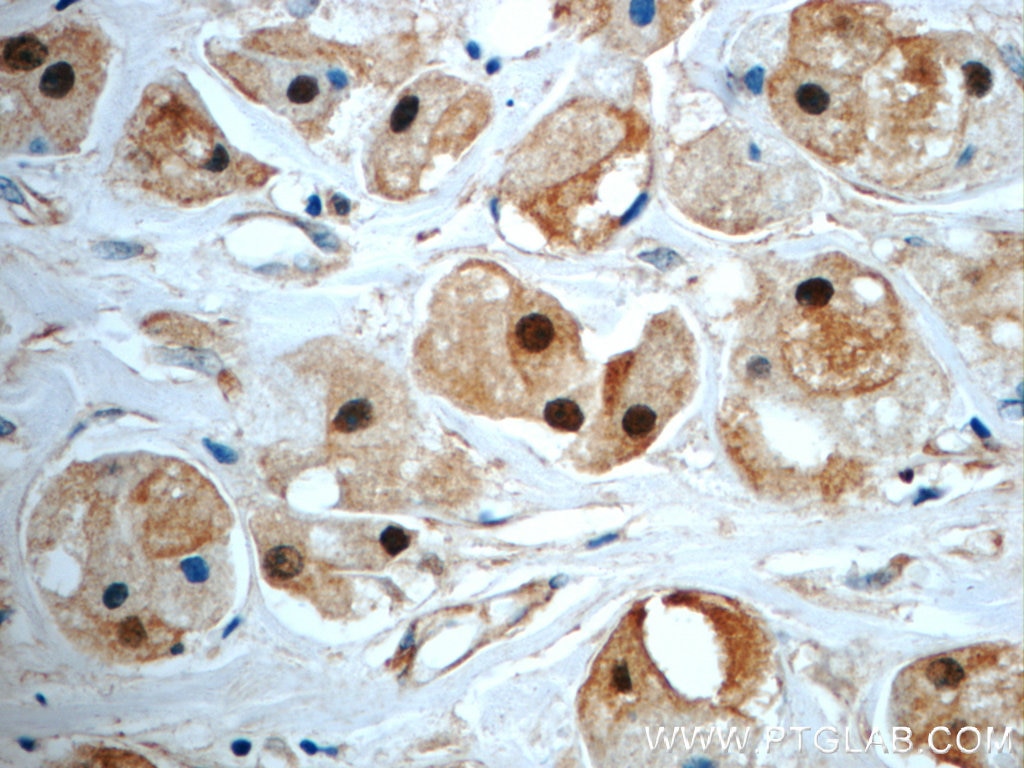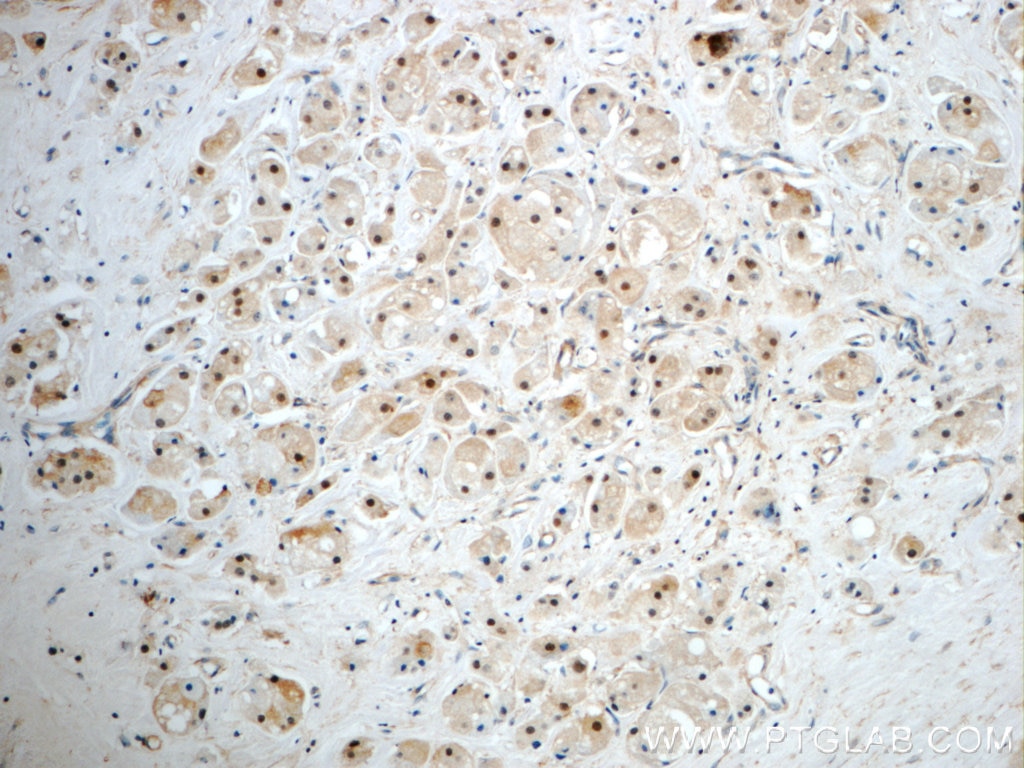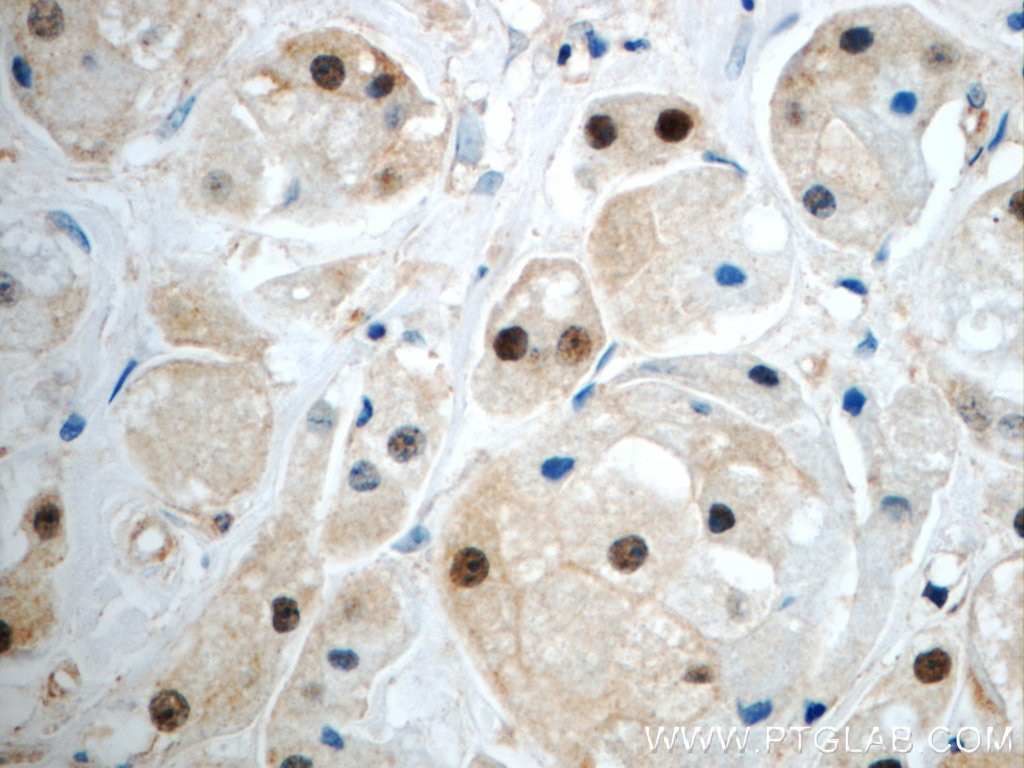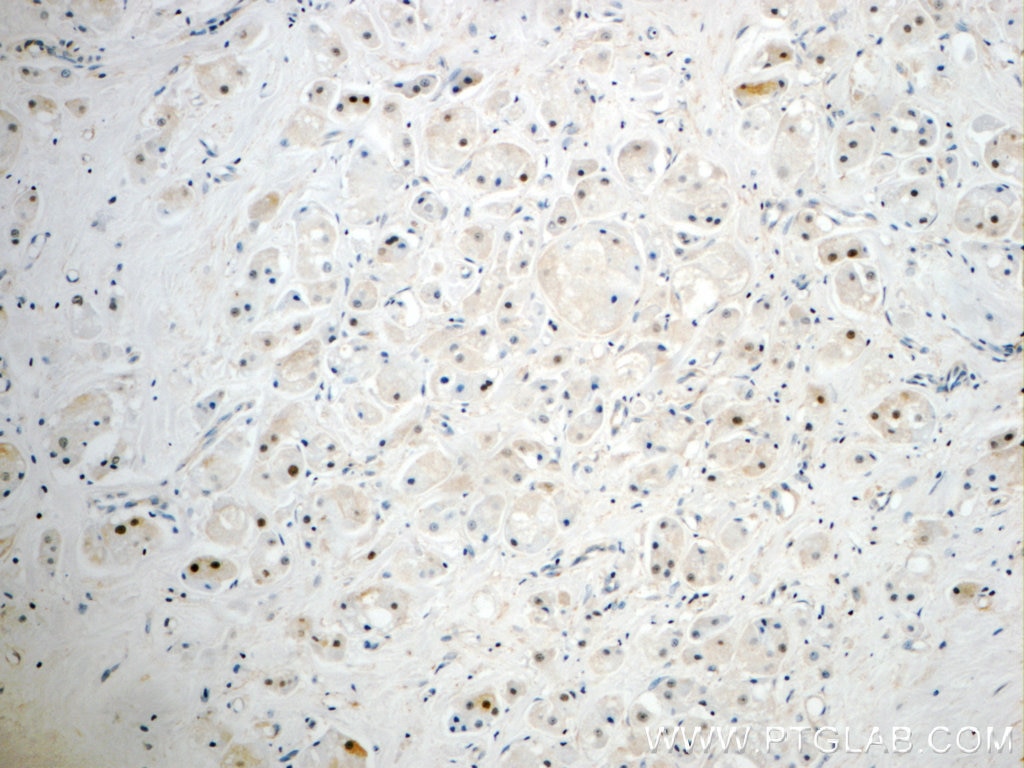Tested Applications
| Positive WB detected in | HEK-293 cells, HeLa cells, HepG2 cells, MCF-7 cells |
| Positive IP detected in | HeLa cells |
| Positive IHC detected in | human breast cancer tissue Note: suggested antigen retrieval with TE buffer pH 9.0; (*) Alternatively, antigen retrieval may be performed with citrate buffer pH 6.0 |
Recommended dilution
| Application | Dilution |
|---|---|
| Western Blot (WB) | WB : 1:1000-1:6000 |
| Immunoprecipitation (IP) | IP : 0.5-4.0 ug for 1.0-3.0 mg of total protein lysate |
| Immunohistochemistry (IHC) | IHC : 1:200-1:800 |
| It is recommended that this reagent should be titrated in each testing system to obtain optimal results. | |
| Sample-dependent, Check data in validation data gallery. | |
Published Applications
| KD/KO | See 1 publications below |
| WB | See 16 publications below |
| IHC | See 2 publications below |
| IP | See 2 publications below |
| CoIP | See 2 publications below |
Product Information
20366-1-AP targets SUZ12 in WB, IHC, IP, CoIP, ELISA applications and shows reactivity with human, rat samples.
| Tested Reactivity | human, rat |
| Cited Reactivity | human, mouse |
| Host / Isotype | Rabbit / IgG |
| Class | Polyclonal |
| Type | Antibody |
| Immunogen | Peptide Predict reactive species |
| Full Name | suppressor of zeste 12 homolog (Drosophila) |
| Calculated Molecular Weight | 83 kDa |
| Observed Molecular Weight | 80-90 kDa |
| GenBank Accession Number | NM_015355 |
| Gene Symbol | SUZ12 |
| Gene ID (NCBI) | 23512 |
| RRID | AB_10694152 |
| Conjugate | Unconjugated |
| Form | Liquid |
| Purification Method | Antigen affinity purification |
| UNIPROT ID | Q15022 |
| Storage Buffer | PBS with 0.02% sodium azide and 50% glycerol , pH 7.3 |
| Storage Conditions | Store at -20°C. Stable for one year after shipment. Aliquoting is unnecessary for -20oC storage. 20ul sizes contain 0.1% BSA. |
Background Information
SUZ12, also termed CHET9, JJAZ1 or KIAA0160, belongs to the VEFS (VRN2-EMF2-FIS2-SU(Z)12) family. It is a polycomb group (PcG) protein. SUZ12 is a component of the PRC2/EED-EZH2 complex, which methylates 'Lys-9' and 'Lys-27' of histone H3, leading to transcriptional repression of the affected target gene. The PRC2/EED-EZH2 complex may also serve as a recruiting platform for DNA methyltransferases, thereby linking two epigenetic repression systems. Genes repressed by the PRC2/EED-EZH2 complex include HOXC8, HOXA9, MYT1 and CDKN2A. A chromosomal aberration involving SUZ12 may be a cause of endometrial stromal tumors.
Protocols
| Product Specific Protocols | |
|---|---|
| WB protocol for SUZ12 antibody 20366-1-AP | Download protocol |
| IHC protocol for SUZ12 antibody 20366-1-AP | Download protocol |
| IP protocol for SUZ12 antibody 20366-1-AP | Download protocol |
| Standard Protocols | |
|---|---|
| Click here to view our Standard Protocols |
Publications
| Species | Application | Title |
|---|---|---|
Mol Cancer Cell surface CD55 traffics to the nucleus leading to cisplatin resistance and stemness by inducing PRC2 and H3K27 trimethylation on chromatin in ovarian cancer | ||
Mol Cell TRACE generates fluorescent human reporter cell lines to characterize epigenetic pathways.
| ||
EMBO J A covalently bound inhibitor triggers EZH2 degradation through CHIP-mediated ubiquitination. | ||
Eur J Med Chem Discovery of precision targeting EZH2 degraders for triple-negative breast cancer. | ||
Sci Rep Polycomb repressive complex 2 facilitates the nuclear export of the influenza viral genome through the interaction with M1. | ||
Am J Cancer Res N-terminal truncated carboxypeptidase E represses E-cadherin expression in lung cancer by stabilizing the Snail-HDAC complex. |
Reviews
The reviews below have been submitted by verified Proteintech customers who received an incentive for providing their feedback.
FH Nikhil (Verified Customer) (01-07-2022) | HCT116 whole cell extract, 20micro/lane. Lane 2-4 transient expression of EZH2
 |
